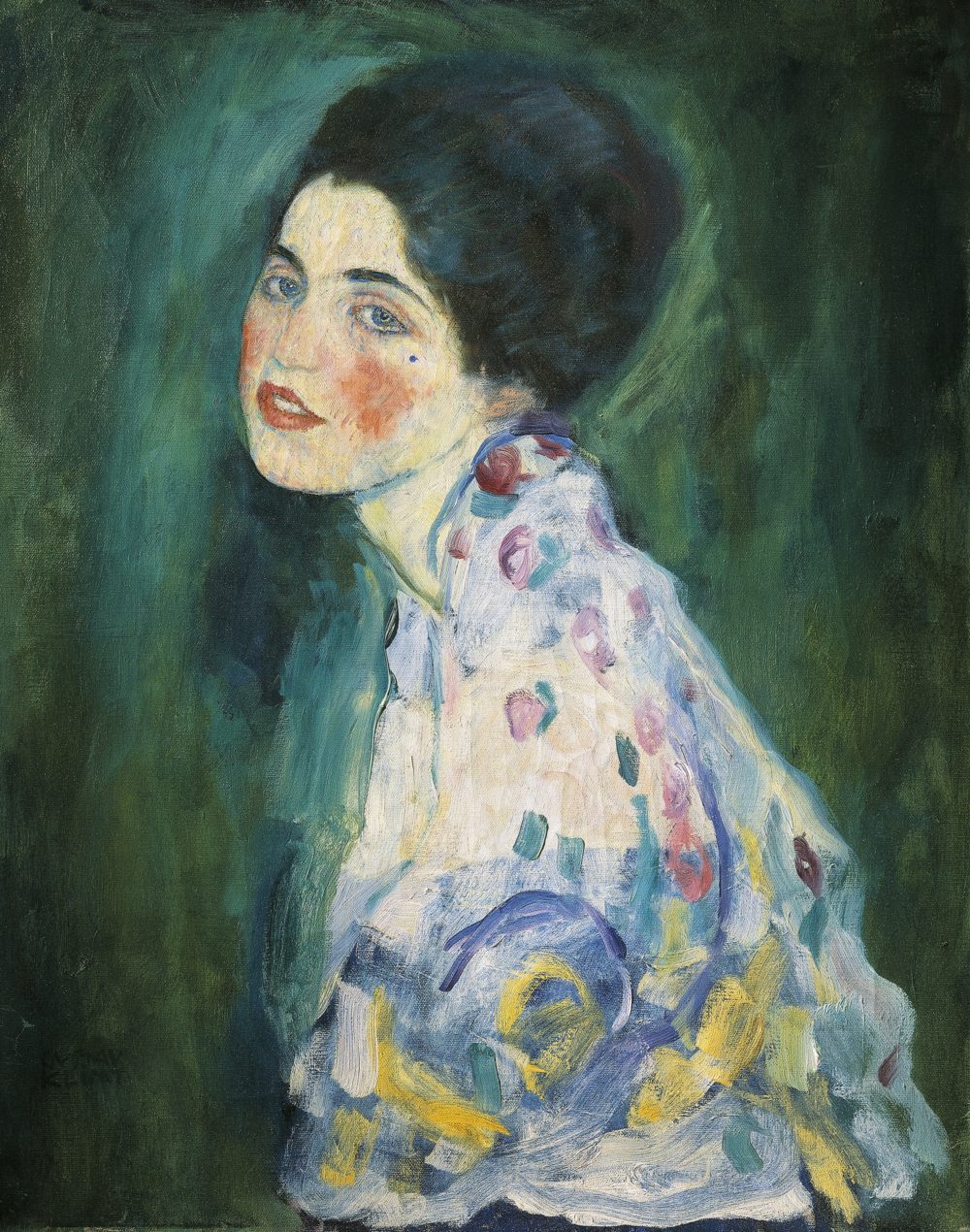
In a stunning twist in an already strange tale, two men have confessed to stealing, and then sneakily returning, a Gustav Klimt painting to a gallery in Italy. The missing painting was recently uncovered by gardeners inside an external wall of the same gallery from which it was stolen some 24 years ago.
The extraordinary series of events occurred at the Ricci Oddi Modern Art Gallery in the Italian city of Piacenza. The police closed in on the pair of criminals after they wrote a letter to the local newspaper, Libertà, confessing to the decades-old crime.
“We are the authors of the theft of Klimt’s Portrait of a Lady, and we have given a gift to the city by returning the canvas,” the men, who are in their 60s, wrote.
The pair were part of a crime ring that has been responsible for a number of burglaries in the area. The letter was written to one of the paper’s reporters, Ermanno Mariani, who had interviewed one of them when he was being tried for burglary several years ago.
The painting was discovered on December 10 by gardeners who were clearing ivy from an external wall. It was hidden in a trash bag inside an alcove behind a secret panel. On Friday, experts appointed by Italian prosecutors confirmed the authenticity of the work, and the pair were taken in for questioning.
The pair’s lawyer, Guido Gulieri, tells the Guardian that they claim to have returned the painting four years ago, and have given police the address of the house in which they say it had been stored before that time. “They have been obscure about the details but have always maintained that the painting was not in the cavity all of that time,” the lawyer said. “I’m not a technical expert, but it would have been damaged if it had been there for all those years.” (Artnet News reached out to Gulieri for comment but did not immediately hear back.)
Their story is corroborated by the findings of the conservation team, which reported the painting to be in good condition. It would be unlikely for a painting that had been stored in the alcove for 23 years to be completely undamaged.
The thieves made the recent confession more than 20 years after the February 22, 1997 theft, timing it to come after the expiration of the statute of limitations on the crime. Facing jail time for a separate burglary spree, they may have been attempting use the Klimt painting’s whereabouts as a bargaining chip in gunning for a reduced sentence. In their confession, they wrote that they had decided to tip off the public only after they were “sure not to incur further crimes,” and added that they “did not foresee the intervention of the gardener who, however, only anticipated us a little.”
The confession was timed alongside an imminent sentence from Italy’s Supreme Court. They will now serve seven years and two months, and four years and eight months, respectively, for “theft and receiving stolen goods” from targets including villas, apartments, and companies, according to Libertà.
While the police are still investigating the crime—it was reported on Friday that there was forensic evidence on the painting—their lawyer says they will not go to prison for the theft of the Klimt. “It is a very strange story,” Gulieri says. “They could have sold it or burned it… But the good news is, we have found the painting.”